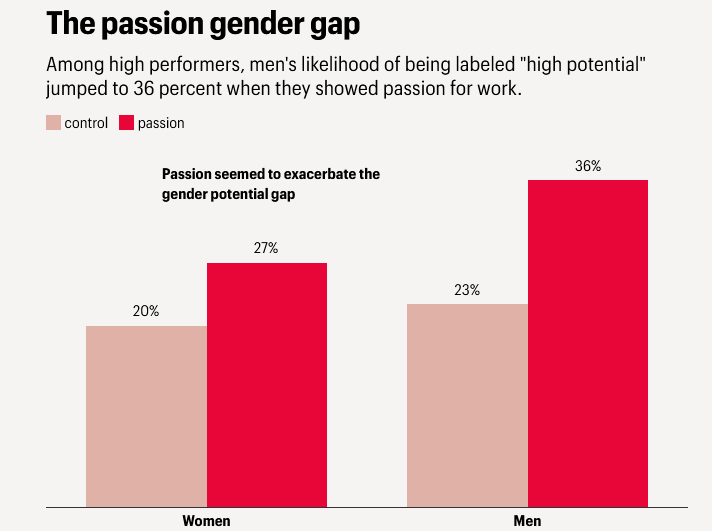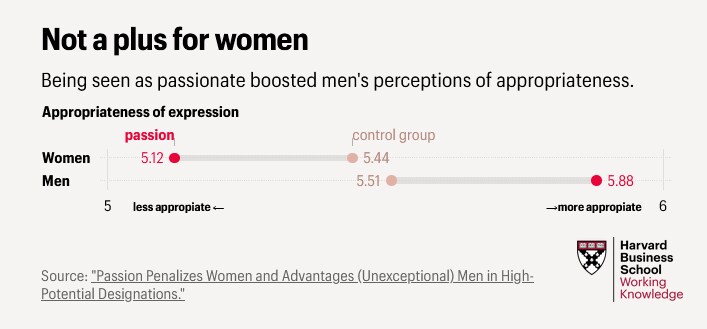To leverage employee passion, save it for when it counts
Studying passion has been Jon Jachimowicz's passion. Three of his latest findings can help managers and employees tap into passion—and know when to turn it down


Managers widely consider passion a motivating force that sets top performers apart. But a string of recent research studies ask: What if passion isn’t as beneficial as we think?
That question has intrigued Harvard Business School Assistant Professor Jon Jachimowicz since he felt his own fire fading during graduate school—a startling recognition that sent him searching for answers. He talked to hundreds of people in his professional network about their struggles and soon discovered his career-defining focus: exploring passion and how businesses and leaders can harness it.
“When you pursue what you’re passionate about, it can be more difficult because you care more," he says. "Any setback hurts more."
Jachimowicz has since extended his examination of passion to team dynamics, workplace fairness, and employee well-being. As murky economic signals and weakening consumer demand prompt many companies to cut staff, many managers will try to keep their teams focused and engaged.
Understanding three new findings about passion from Jachimowicz and his research colleagues could unlock motivation and help frazzled employees find balance.
Research shows that passion spreads rapidly within teams, helping to boost individual and group performance. However, in a recent study, Jachimowicz and colleagues find that this “contagion effect" also has a downside: It puts less-passionate employees under pressure to conform.
This tendency diminishes the benefits of “caught" passion because of the effort it takes to keep up with the group, finds the paper “Riding the Passion Wave or Fighting to Stay Afloat?"
The researchers drew their conclusions from a field study of 829 engineers across 155 teams at an engineering firm. Over 20 workdays, the engineers rated their passion levels, emotional exhaustion, and social connection three times a day.
The data revealed that while passion had a net positive effect—driving better performance, lower exhaustion, and stronger social ties—it also took a toll. The exhilaration of being around passionate teammates often came with periods of emotional exhaustion.
To validate these findings, the researchers asked a separate group of over 1,000 workers to review vignettes and rate their emotional state, which confirmed that contagious passion requires energy to sustain.
“We often assume that catching passion is effortless," Jachimowicz explains. “But sometimes people have to psych themselves up."
Managers evaluating employees for promotions typically see a relationship between passion and potential. Sometimes, though, gender stereotypes can skew this relationship, say Jachimowicz and colleagues in “Passion Penalizes Women and Advantages (Unexpectional) Men in High-Potential Designations."
Jachimowicz says men are often perceived as less diligent than women, so even a small display of passion can boost their chances of being seen as having “high potential." Women—already regarded as highly diligent—benefit less from the same display.


Women face another disadvantage: People view their passionate expressions, such as energetic gestures or tone of voice, more negatively. The team drew their conclusions from two related studies:
An analysis of 800 employees who ranked in the top quintile of a company’s high-potential program.
An experiment with 1,400 US-based employees who rated videos of actors based on traits like diligence and passion. Men were identified as having high potential 38 percent of the time, compared with 30 percent for women.
Simply put, “being seen as passionate moves the needle less for women than men," Jachimowicz says.
Passion often motivates employees to work longer hours with more commitment and energy. That’s the good news. The bad news is what happens afterward, Jachimowicz says.
A spike in passion can exhaust employees and hurt their performance, putting them at risk of burnout, finds the paper “The Challenge of Maintaining Passion for Work Over Time."
The team conducted two distinct surveys:
Interestingly, the type of passion mattered. Employees who felt that they were in control of their passion—who leveraged strategies to keep their passion in check—reported less emotional strain, while particularly those who let their passion run its course struggled to detach and recover. In more passionate moments, employees tend to “say yes to too many things," Jachimowicz says.
“Feeling passionate can distort your sense of how much energy you have. You don’t recognize that you need a break. People may not be the best judges of their own capabilities when they are at their most passionate," he elaborates.
Jachimowicz suggests three tips for employees and leaders:
First Published: Apr 01, 2025, 11:11
Subscribe Now